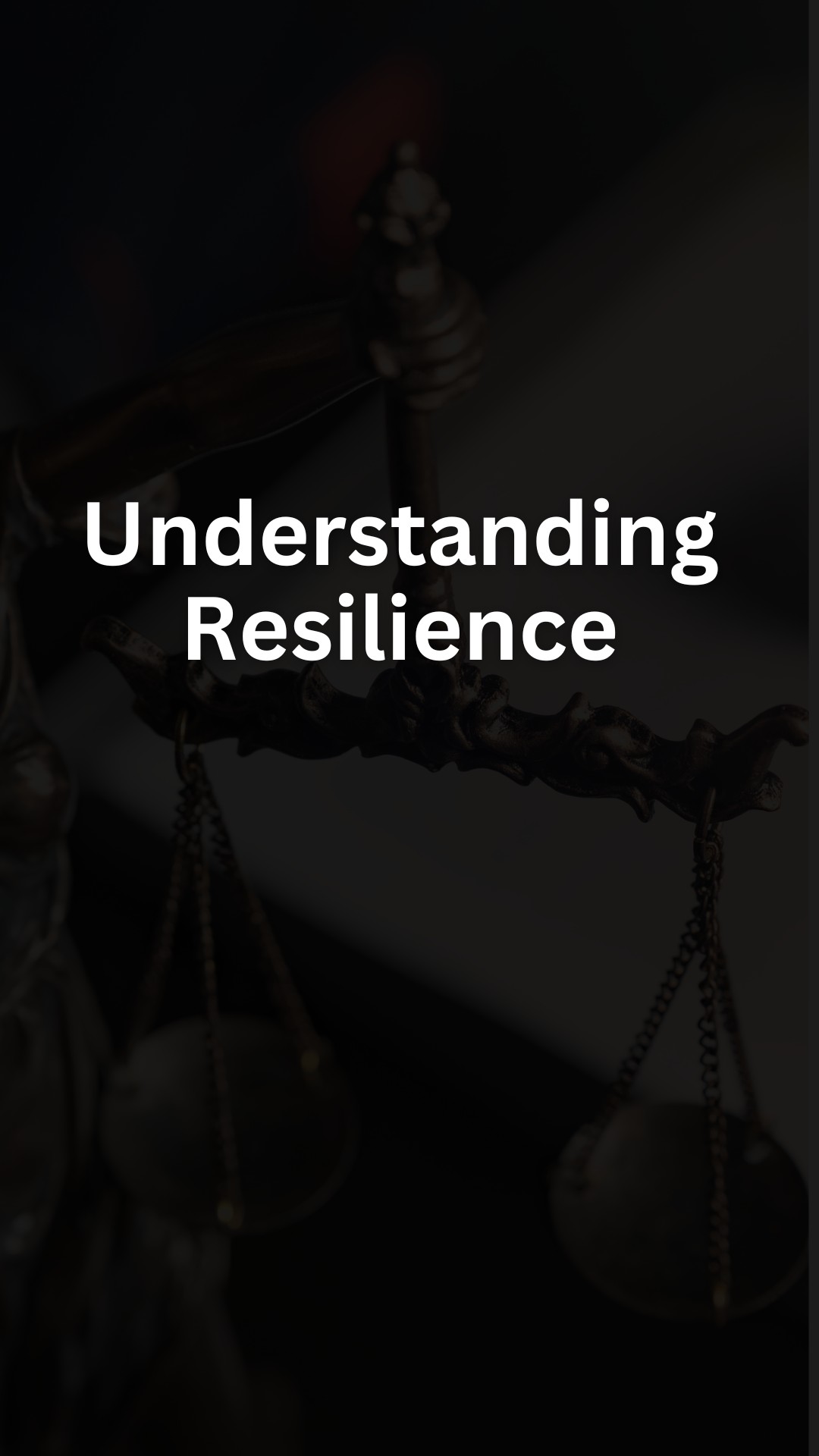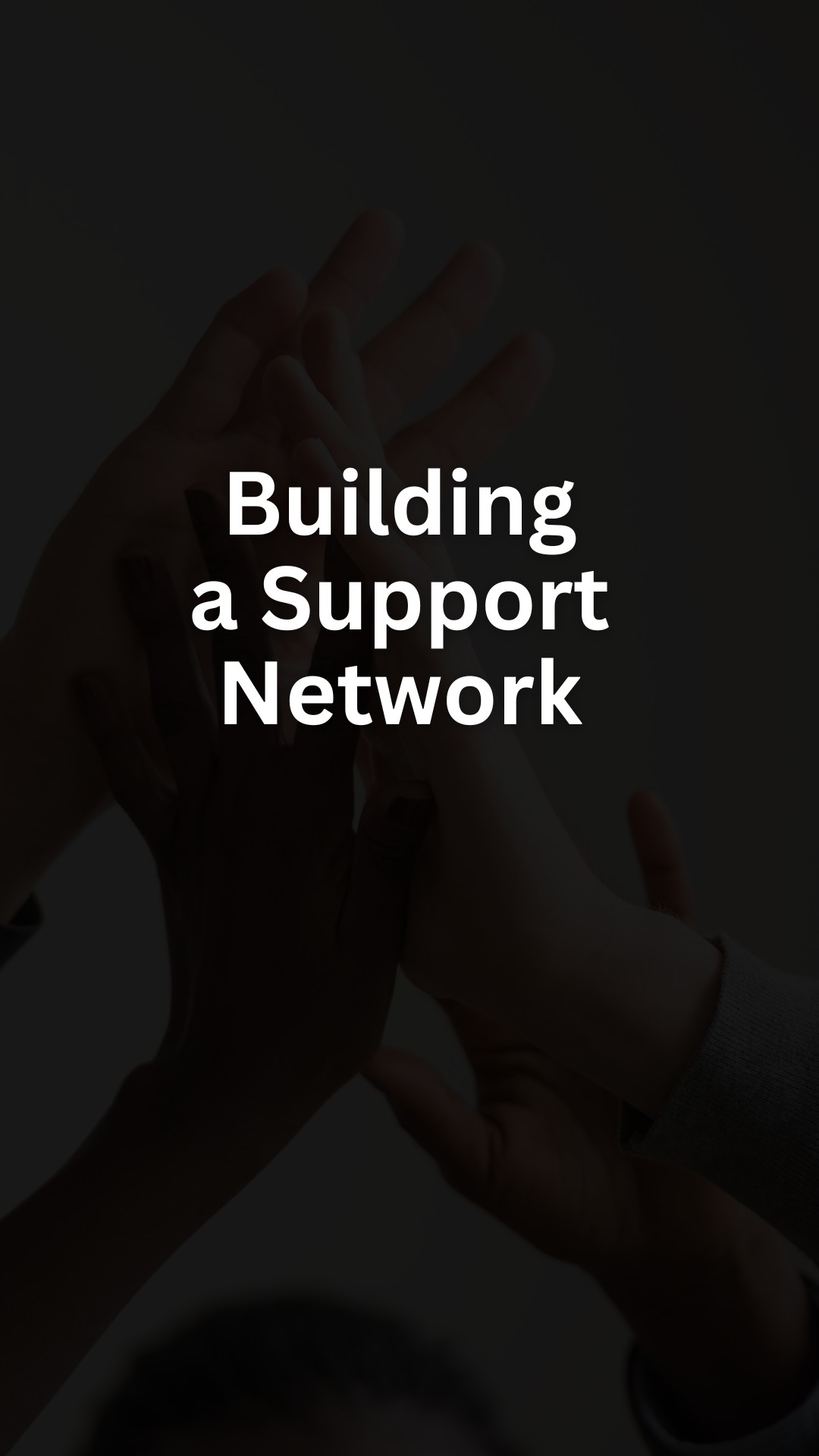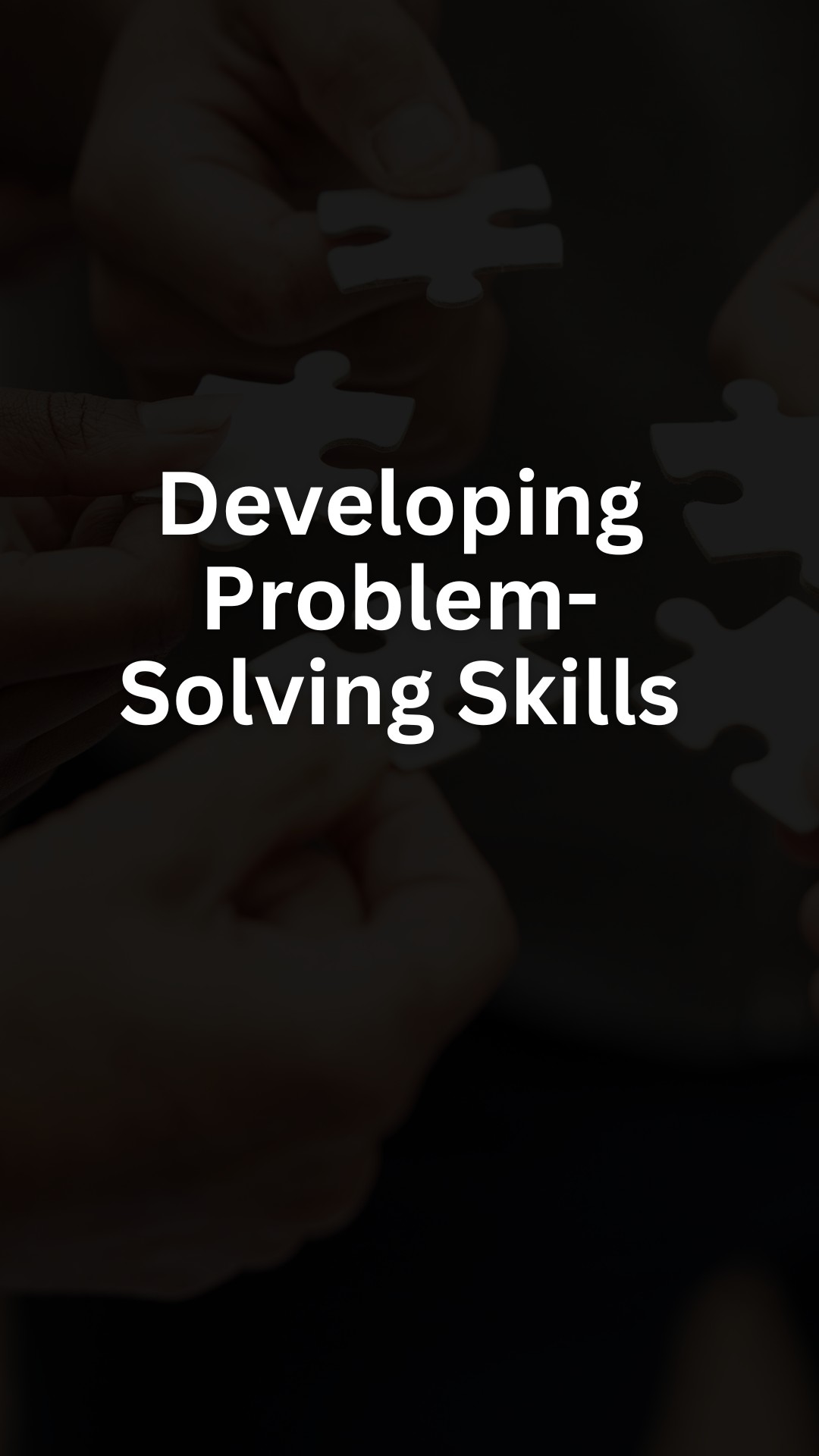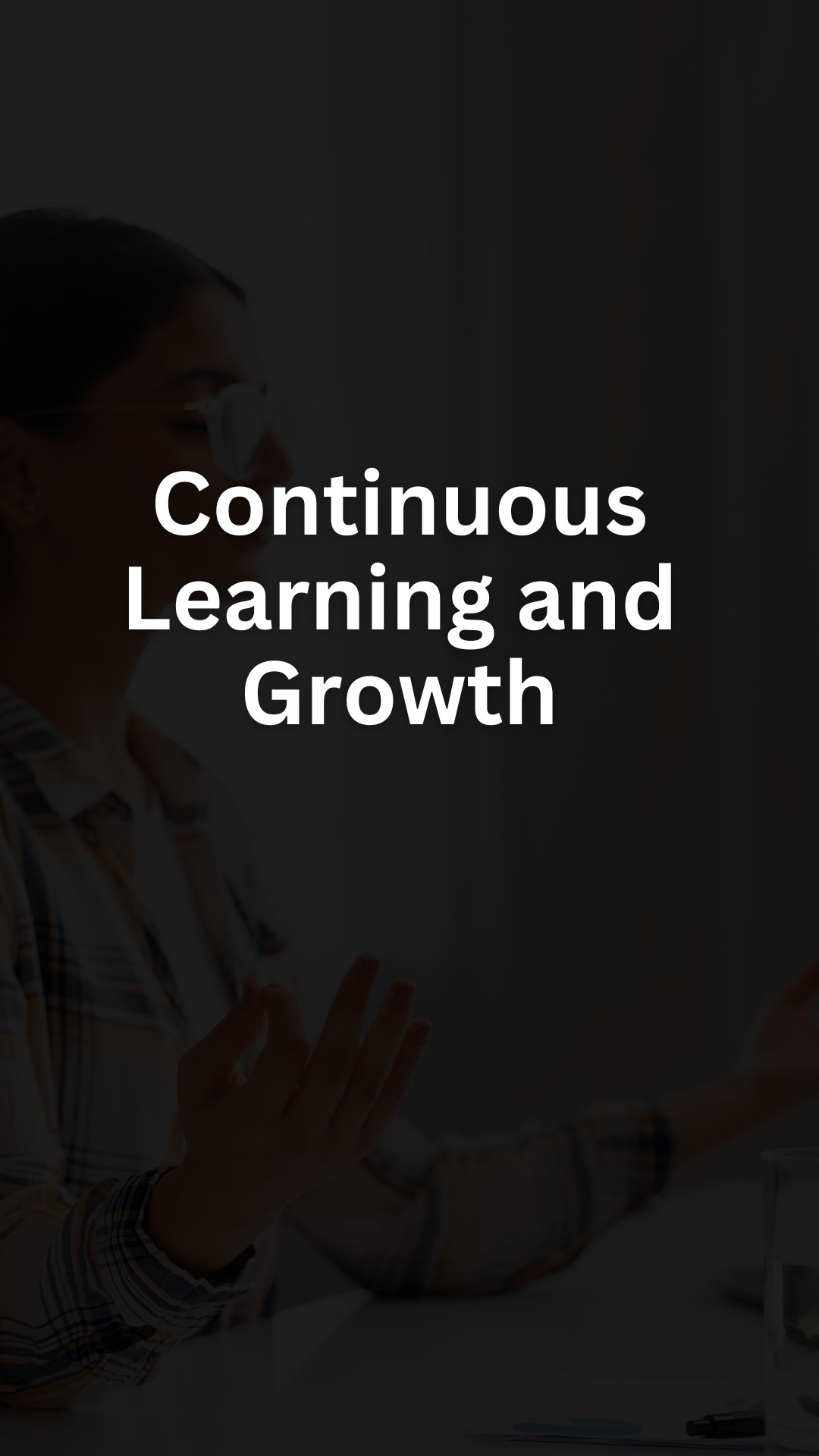Building resilience is key to achieving career success.
Being resilient means you can handle setbacks, adapt to change, and keep moving forward despite challenges. This skill is not just for times of crisis but helps you thrive in everyday work situations too.
You can develop resilience by setting realistic goals and breaking them down into manageable steps.
Taking care of your physical and mental health also plays a crucial role.
When you are well-rested and healthy, you are better equipped to face any obstacles that come your way.
Networking can also boost your resilience.
Connecting with colleagues and mentors provides support and insights, making it easier to navigate tough times.
Remember, being resilient doesn’t mean you won’t face difficulties, but you’ll be better prepared to overcome them.
Understanding Resilience

Resilience is the ability to bounce back from challenges and adapt to change.
Learning how resilience works and how it’s different from just being tough can help you succeed in your career.
The Psychology of Resilience
Resilience is about more than just toughing it out.
It involves a mix of optimism, flexibility, and staying motivated even when things get tough.
Key psychological traits include self-efficacy (believing in your abilities), realism (having a balanced view of challenges), and emotional regulation (managing your feelings).
Building these traits can help you handle stress and recover faster from setbacks.
Resilience vs. Toughness
It’s important to know that resilience isn’t the same as toughness.
Toughness often means enduring pain or hardship without showing weakness. On the other hand, resilience is about recovering and growing stronger each time you face difficulties.
While toughness can keep you going in the short term, resilience helps you thrive in the long run.
Self-Assessment

To build resilience for career success, start by gaining a clear understanding of your personal strengths and areas for growth. This process helps you set realistic goals and improve your skills.
Identifying Personal Strengths
Recognizing what you do well is vital.
Make a list of tasks or projects where you excel. Ask colleagues or mentors for feedback. Look for patterns in your past performance reviews.
Highlight specific skills such as:
- Leadership
- Problem-solving
- Communication
- Technical expertise
Write down examples where you’ve used these strengths effectively.
This helps build your confidence. Recognizing your strengths also guides you into roles where you can shine and make the most impact.
Recognizing Areas for Growth
Identifying where you need improvement is just as important.
Reflect on projects where you faced challenges. Ask for constructive feedback from trusted colleagues. Pay attention to skills that are often mentioned in job descriptions you aim for.
Focus on common areas needing improvement such as:
- Time management
- Public speaking
- Technical skills
- Team collaboration
List these areas and seek out training or mentorship to improve.
Breaking your goals into manageable steps makes it easier to track progress.
Embrace the learning process and view these areas as opportunities to grow, not just weaknesses to fix.
Effective Goal Setting

Setting goals is a key part of building resilience in your career. It helps you stay focused and motivated. You need both short-term goals and long-term aspirations to keep you on track.
Short-Term Goals
Short-term goals are targets you aim to hit within a few days, weeks, or months. They help you stay focused every day.
For instance, if you want to learn a new skill, your short-term goal could be to study for an hour each day.
Key points for setting short-term goals:
- Be Specific – Instead of saying “I want to improve at work,” say “I want to finish my reports faster.”
- Measurable – Make sure you can track your progress, like “I will complete 3 reports in one day.”
- Achievable – Set goals that are realistic. Don’t aim too high too fast.
- Relevant – Your goals should relate to your long-term aspirations.
- Time-bound – Set a deadline to keep yourself on track.
Long-Term Aspirations
Long-term aspirations are what you want to achieve in the future, often in years. They give you a bigger picture to work towards.
For example, you might aspire to become a manager or start your own business.
Key points for setting long-term aspirations:
- Vision – Think about where you see yourself in 5 or 10 years.
- Step-by-Step – Break down these big aspirations into smaller, manageable pieces.
- Flexibility – Life changes, so be prepared to adjust your goals as needed.
- Commitment – Stay dedicated, even when progress is slow.
- Review – Regularly check your progress and adjust your plan if necessary.
Building a Support Network

Building a strong support network is crucial for career success. It can provide guidance, open doors to new opportunities, and offer emotional support during challenging times.
Mentorship
A mentor can guide you through your career path. Choose someone with experience in your field who you respect.
A mentor can offer valuable advice, help you make decisions, and provide feedback.
Regular meetings with your mentor can help you stay on track and grow professionally.
Look for mentors in your workplace, industry associations, or professional groups.
Don’t be afraid to reach out to someone you admire. Building a good relationship with your mentor is key. Be open, honest, and willing to learn.
Professional Networks
Joining professional networks can connect you with others in your field.
These networks often have events, workshops, and online forums where you can meet people.
By attending these, you can gain new insights, share your experiences, and learn about job opportunities.
Creating a strong LinkedIn profile and actively participating in industry groups online can also help.
Networking doesn’t stop at just meeting people; maintaining these connections is important too.
Follow up with new contacts and keep in touch regularly.
Peer Support
Having peers who understand your career struggles and achievements is invaluable.
They can offer moral support, share advice, and collaborate on projects.
Peer support can come from coworkers, friends in your industry, or online communities.
Engaging with peers can help you stay motivated and accountable.
Set up regular check-ins or join a study group to exchange knowledge.
Sharing your challenges and successes with peers helps build a sense of community and belonging, which is essential for resilience.
Developing Problem-Solving Skills

Developing problem-solving skills is crucial for career success. Key areas to focus on include critical thinking, adaptability, and creating innovative solutions.
Critical Thinking
Critical thinking helps you analyze and evaluate information to make better decisions.
You need to question assumptions, look for evidence, and think logically.
Practicing critical thinking involves asking questions like “What do I know?”, “How do I know it?”, and “What am I missing?”
Make it a habit to gather all the facts before making a decision. Look at problems from different perspectives.
This approach will help you identify the root cause and develop effective solutions.
Adaptability
Adaptability means being able to adjust to new situations quickly. In your career, changes are inevitable.
You need to be open to learning new skills and adapting to new environments.
To improve adaptability, practice stepping out of your comfort zone. Take on new projects and responsibilities.
This will help you become more flexible and better prepared for unexpected challenges.
Learning to stay calm under pressure and being open to feedback are also important.
These qualities will help you navigate changes more smoothly.
Creative Solutions
Creative solutions involve thinking outside the box to solve problems. This requires imagination and a willingness to try new approaches. Innovation can set you apart in your career.
To boost creativity, brainstorm ideas without judging them immediately.
Write down all possible solutions and then evaluate them.
Being curious and asking “What if?” can lead to breakthrough ideas.
Encourage a mindset of exploration and experimentation. Sometimes, the best solutions come from trying something new and learning from failures.
Stress Management Techniques

Managing stress is key to staying productive and happy at work. Learning how to manage time, practice mindfulness, and adopt healthy habits can make a big difference.
Time Management
Effective time management helps you stay on top of your tasks and reduces stress.
Start by setting clear goals for what you want to achieve each day or week. Break large tasks into smaller, manageable steps. Prioritize your to-do list, focusing on the most important items first.
Use tools like calendars, planners, or apps to keep track of deadlines and appointments.
Schedule regular breaks to avoid burnout. Keep in mind that it’s okay to say no to new tasks if your plate is already full.
Mindfulness Practices
Practicing mindfulness can help you stay calm and focused.
Simple techniques like deep breathing, meditation, and yoga are great for reducing stress.
Start with just a few minutes each day. Find a quiet spot where you won’t be disturbed.
Pay attention to your breathing and try to clear your mind of distracting thoughts.
If your mind wanders, gently bring it back to your breath. Over time, mindfulness can become a routine part of your day, helping you handle stress better.
Healthy Lifestyle Choices
Making healthy lifestyle choices can also play a big role in managing stress.
Regular exercise helps reduce tension and improve your mood. Aim for at least 30 minutes of moderate exercise most days of the week.
Eating a balanced diet can keep your energy levels stable. Avoid caffeine and sugar, which can make stress and anxiety worse.
Getting enough sleep is crucial for stress management. Aim for 7-9 hours of sleep per night.
Overcoming Setbacks

Facing setbacks is inevitable in any career. The key to success is how you respond to these challenges. You can learn from mistakes, stay motivated, and handle changes effectively.
Learning from Failure
Failure is a part of growth. When you make a mistake, take some time to analyze what went wrong.
Identify key factors that contributed to the failure. This can include lack of preparation, poor communication, or unforeseen obstacles.
Create a plan to address these factors.
For example, if poor communication was an issue, set regular check-ins with your team.
Stay positive by seeing failures as lessons. By doing this, you develop strategies to avoid similar mistakes in the future.
Maintaining Motivation
Motivation can drop after a setback.
Set small, achievable goals to regain confidence. Celebrating these small wins can boost your morale.
Keep a positive mindset and remind yourself of your long-term goals.
Surround yourself with supportive people. Friends, family, or mentors can provide encouragement and perspective.
Take care of your health by getting enough sleep, eating well, and exercising. Good physical health helps maintain mental strength.
Resilience in the Face of Change
Change can be stressful, but it’s a part of every career.
Adaptability is key to resilience. Embrace change by viewing it as an opportunity for growth.
Stay informed about industry trends so you can anticipate changes and prepare for them.
Develop a flexible mindset by being open to new ideas and ways of doing things.
Seek feedback from peers and supervisors to continuously improve.
Accept that change can lead to better opportunities and enhance your career development.
Continuous Learning and Growth

Continuously learning and growing is key to building resilience in your career. It means actively seeking feedback and committing to lifelong learning.
Seeking Feedback
Feedback is important for your growth. It shows you what you are doing well and where you need to improve.
You should ask for feedback from your managers, colleagues, and even clients. This can be done through regular check-ins, surveys, or casual conversations.
Take the feedback you receive seriously. Reflect on it and find ways to apply it to your work.
Constructive criticism can help you identify weak areas and boost your skills.
Remember, no one is perfect, and there is always room to grow and improve.
Lifelong Learning Commitment
Being committed to lifelong learning means never stopping your education. You can take courses, attend workshops, or read books related to your field.
Staying updated with industry trends and new technologies is crucial. It helps you stay competitive.
You can also join professional groups or online forums. These can provide valuable insights and networking opportunities.
Making learning a habit helps you stay flexible and adaptable in a constantly changing world.
This dedication not only enhances your skills but also builds your confidence to tackle new challenges.
Leveraging Resilience for Career Advancement

Resilience can boost your career by helping you secure promotions and excel in leadership roles. It also aids in starting and sustaining entrepreneurial ventures.
Promotion and Leadership
In your career, resilience is key to climbing the ladder. Handling setbacks calmly shows that you can manage stress and bounce back quickly. This skill is valued by employers when choosing leaders.
Resilient individuals take constructive criticism well. They use feedback to improve instead of feeling discouraged.
By showing growth and adaptability, you make a stronger case for promotion.
Team dynamics improve when a leader is resilient.
You can motivate your team during tough times by staying positive and focused. This boosts team morale and performance, making you a valuable leader.
Entrepreneurial Endeavors
Starting your own business is challenging. Resilience makes a big difference.
Facing initial failures and learning from them sets you apart. You remain persistent, which is crucial for long-term success.
Resilient entrepreneurs are better at decision-making under pressure. They remain calm and think clearly, even when things go wrong. This helps in making better strategic choices.
Being resilient also means adapting to market changes.
You stay flexible and open to new ideas, which keeps your business competitive. This ability to pivot can be the difference between success and failure.
Frequently Asked Questions

In this section, we explore how to develop resilience for career success. You will find strategies, examples, and methods for measuring and building resilience at work.
What strategies can professionals employ to strengthen resilience in their careers?
To build resilience, start by setting clear goals. Keep a positive attitude even when facing setbacks.
Learn from your mistakes instead of dwelling on them.
Seek feedback from trusted colleagues to improve.
Practice stress management techniques, such as deep breathing or meditation.
Can you provide examples of resilience in a professional context?
A project manager faces a major deadline setback but rallies the team to meet the deadline.
An employee receives critical feedback from a boss and uses it to improve performance.
A sales professional loses a big client but continues to pursue new opportunities without losing motivation.
How can individuals measure their career resilience effectively?
Track your progress by setting short-term and long-term career goals.
Notice how you handle stressful situations.
Ask for feedback from colleagues or mentors about your adaptability.
Pay attention to how quickly you recover from setbacks.
Regularly review and reflect on your career advancements and learnings.
What does having career insight entail, and how does it relate to resilience?
Career insight means understanding your strengths, weaknesses, and interests.
It involves knowing the skills needed for your job and staying updated with industry trends.
When you have career insight, you can make informed decisions and adapt better to changes, which boosts resilience.
What approaches can individuals take to overcome a career plateau by building resilience?
Reflect on your career goals and identify areas for growth.
Seek new challenges or take on additional responsibilities at work.
Invest time in learning new skills or earning certifications.
Network with professionals in your field to find new opportunities.
Stay open to feedback and use it for improvement.
What are proven methods to foster professional resilience in a challenging work environment?
Create a supportive network of colleagues and mentors.
Focus on problem-solving instead of getting overwhelmed by issues.
Prioritize self-care to maintain physical and mental health.
Develop strong communication skills to effectively express concerns and solutions.
Stay motivated by recognizing and celebrating small achievements.